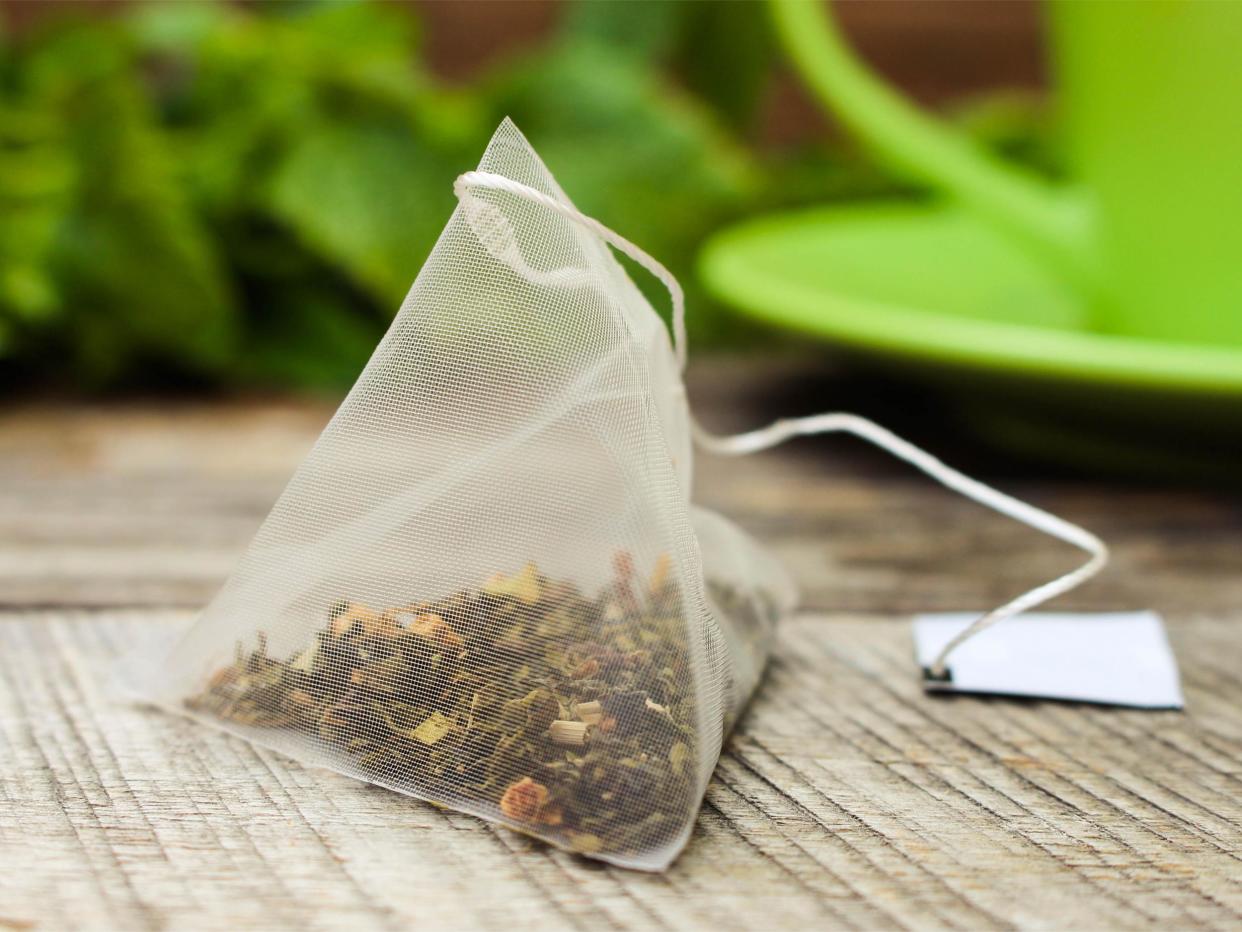20 pledges for 2020: How to stop your favourite brew adding to plastic pollution

This pledge is all about reducing shopping online in order to consume less plastic packaging that comes with it – as well as making better purchasing choices to avoid said excess plastic.
But, I’m buying my plastic-free tea bags online. It’s a bit of an oxymoron. But it’s because none of the supermarkets near my flat stock the plastic-free tea I like most.
I had no idea there was even plastic in tea, until I undertook my first Plastic-Free July challenge in 2018. During this month, I was adamant to not buy another multipack of loo roll ever again because it comes wrapped in that annoying thin plastic that is practically impossible to recycle.
After writing about some of the best products I found during Plastic Free July, I became inundated with brands who were shunning non–recyclable plastics. Then I learned most tea bags are in fact sealed by using plastic. As an avid tea drinker – this opened up a whole new world of problems for me.
Of course, loose leaf tea quickly solves it – as long as it comes in a recyclable cardboard box or compostable “plastic” wrapper made from Naturelfex, which is created using wood pulp that’s been sustainably harvested. But the humble tea bag is all about convenience. Who has a teapot at work? And has time to faff about with that and strainers etc? Usually finding a clean mug and milk in the fridge is enough to concern yourself with, without the added stress of washing a teapot full of used leaves out – and potentially clogging the shared office kitchen sink – or a strainer being lost or “rehomed”.
When I started looking for a new plastic–free tea bag, I found plenty of tea brands that were already offering tea bags made without the plastic seal. The secret behind making a tea bag without plastic is making the bag from soilo, a cornstartch material that doesn’t need to be sealed with plastic.
Some companies had cracked this, but not quite managed to be 100 per cent plastic free just yet, as it still contained plastic in its packaging.
One that is on its way to do doing so is Clipper. Towards the end of 2018, Clipper launched an all singing and dancing eco tea bag. The bag is plastic-free, unbleached, and not genetically modified, which was a world first. It’s also free of pesticides and has been fairly traded, but – and this is a big but – the plastic foil packaging inside is not currently recyclable, although the brand is moving towards that.
A brand that is totally free of plastic is T2. It’s an Australian tea company that hit our highstreets with its colourful cubes of loose leaf and tea bags and wonderfully inviting teashops where you can taste the brew before you buy. Although coming in at £7 for a box of 15 teabags, it’s one to be savoured, and certainly isn’t an every day tea – especially if you’re consuming it all day.
Then I found Brew Tea. And it does offer the full plastic–free package. It’s an indy Manchester–based brand that’s partnered with the Ethical Tea Partnership and you won’t find any “dust” in its tea bags and comes in at £7.99 for a box of 40 in shops (just not any near me).
I had previously found it was available for subscription on Amazon. Yes, another problem in itself, but sometimes you gotta pick your battles. Luckily, I checked the brand’s own website – just in case – and sure enough, it had its own subscription service instead. Needless to say which one I chose to subscribe to.
All you need to do is pick your top three flavours of 15 teabag boxes (they can all be the same) out of the seven on offer, choose from tea bags or loose leaf and the frequency you'd like and that's it. Owner of the brand Phil Kirby says Brew Tea is aiming to make its 100 teabag packs completely compostable by October, as they're currently not.
All the tea bags from the brand are made from cornstarch and the inner packaging is made from Natureflex. Inside the box is a really useful little card telling you what all the packing is made from and how it should be recycled: from the council food recycling (tea bags and inner lining) which decomposes at 45 days to the outer box which goes into the paper recycling. The brand also gained B Corp certification, meaning it’s reached incredibly high standards to prove it’s commitment to being a sustainable company.
Another brand doing great things is We Are Tea, which went one step further in reducing waste by removing the string and label from the teabag. The bag is made from cornstarch and the inner plastic-looking bag is made from Natureflex too, and it’s also a B Corp.
Understandably, with a better quality product comes a higher price tag, but that also means you get a way, way better brew. The leaves will be excellent quality, and you can use one tea bag more than once if you want to and it will still give the same quality brew as the first. But most importantly, you’re not accidentally adding plastic to home compost bins with each cuppa, and neither are you adding to the plastic pollution problem with the packaging – a fair price to pay, I’d say.


